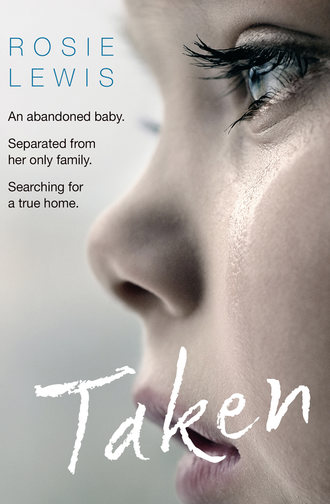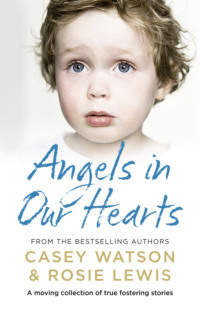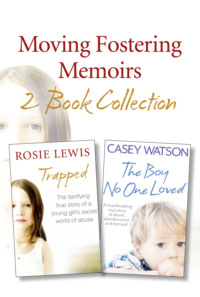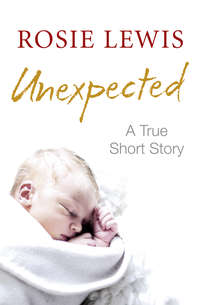
Полная версия
Taken
I let out a breath and rolled my eyes. ‘Phew! That was a bit hairy.’
‘It is at first, I know, but you’ll get used to it,’ Angie said, as Megan began to complain. I set her on my lap again and offered her some more milk, keeping the suction close by on the arm of the chair. Megan pounced eagerly on the teat and Angie gave a little laugh. After a minute or so, she patted my shoulder and bustled off to the nurses’ station in the middle of the ward.
Knowing that I wasn’t causing Megan any discomfort, it was easier to fix a seal the second time around. Every so often she opened her eyes and gazed up at me, the look so trusting that my heart swelled. Time stalled and, immersed in what I was doing, I didn’t notice anyone approaching until a shadow fell across Megan’s face. I turned, taking in a pair of pink slippers. I looked up, the swollen but slightly deflated stomach belonging to the woman in front of me revealing that she was one of the newly delivered mothers.
‘Hi,’ she whispered, introducing herself as Erin. She smiled down at Megan. ‘Ah, bless, what a darling.’ Her eyes swept over Megan’s face, lingering on my fingers as they held the cleft together and the soft-sided bottle. Her brow furrowed inquisitively. ‘I can’t tell you how glad I am you’re here,’ she said after a short pause, leaning forward so that her face was level with mine. ‘My heart bleeds when she cries. She goes on and on, till she’s hoarse. We can’t bear it. She even whimpers in her sleep.’ Erin pouted her lower lip in a gesture of sadness and frowned. ‘Then all of a sudden she goes still, just staring up at the ceiling and you don’t hear a peep out of her. It’s like she’s given up, as if she knows no one’s coming.’
The methadone, I thought, glancing down at Megan, though of course, I didn’t say anything. She had stopped sucking and dropped off to sleep again, her soft breaths rattling in her chest. ‘I came over to give her a cuddle yesterday but’ – Erin rolled her eyes sideways in the direction of the nurses’ station then lowered her voice to a whisper – ‘I got told off. It’s not allowed apparently, but I can’t bear it, seeing her so upset and all alone.’
‘Don’t the nurses see to her when she frets?’
‘Oh yes, don’t get me wrong, they’re brilliant in here. They do their best but sometimes there’s no one free to pick her up. They’re so busy. That’s what I said to them – I don’t mind giving her a cuddle when my little one’s asleep, I said – but it’s against the rules and regulations and God knows what else. You know what these places are like.’
My stomach clenched at the thought of Megan’s cries being ignored. I held her a little closer after that, tilting her towards me so that her heart was next to mine. Through the tinted windows of the unit, the bright clear sky was subdued in dusty shades of pale blue and grey.
From my position in the low chair there was no view of the road and the only reminder of the city centre was the persistent hum of traffic and the faded shadow of inky buildings set against the sky. With Megan’s gentle warmth pressed against my chest and the hypnotic clicking noise as she began sucking again, the city streets fell away into a different realm, vague and irrelevant.
Chapter Three
Barely five minutes later the peace was shattered by a series of howls and loud bangs coming from outside the unit. Turning sharply towards the glass security doors and the reception beyond, I must have jogged the bottle because Megan suddenly spluttered and began to choke again. Silently cursing myself and fumbling for the suction, the commotion going on behind me instantly faded.
I did my best to clear Megan’s airway quickly, only vaguely aware of Angie rushing across the ward, another nurse following hastily behind. As her breathing settled I snatched another glance over my shoulder, wondering what on earth was going on.
It was difficult to see anything beyond a blur of royal-blue uniforms, but from the nurses’ frantic movements and strained voices of forced calm, I could tell they were concerned. Perhaps sensing something, Megan began to cry. I got to my feet and soothed her, rocking gently from foot to foot. Thankfully she brought up some wind as I rubbed her back, and as soon as she’d quietened I settled her into her crib and popped her a fresh dummy back in. It was just as well I had because at that moment a midwife I didn’t recognise hurried over. ‘Mum’s outside,’ she said in a rush, reaching for my bag and handing it to me. ‘She’s insistent that it’s her time for contact so you’d best leave. We’ll take the staff exit.’
With a regretful glance Megan’s way, I followed the nurse past several other incubators, the tiny babies inside surrounded by a tangle of wires and tubes. Their parents, seated protectively nearby, stared between me and the commotion going on beyond the doors with shocked astonishment.
The further away from Megan I got, the more aware I became of the gritty, surprisingly deep voice of her mother. Almost at the other end of the ward, I couldn’t resist another glance behind and saw the face of a small woman somewhere in her early twenties pressed up against the glass doors, her hands resting either side of her like giant suction pads. Dressed in blue tracksuit bottoms and a loose white t-shirt, she had light, thin hair and a narrow face with bloated, heavily hooded eyes. She was flanked by two nurses, each trying to peel her hands away. ‘Get off o’ me!’ she bellowed, her words punctuated by a rattling buzz as she lunged out and jabbed at the intercom. ‘Why you letting some stranger hold my daughter? She’s my fucking baby. Mine.’
Despite her aggression, her expression was distraught and when a thread of uncertainty entered her voice, so that she began to sound more upset than angry, I felt an unwelcome trickle of sympathy for her.
‘This way,’ the midwife said with a curt nod, flinging the door open and ushering me through. Sweeping through a set of double doors, the nurse turned right and then took a sharp left along a narrow, less brightly lit corridor. When we reached another flight of stairs she stopped and faced me. ‘We’re going to have to speak to the social worker before you visit again,’ she said, sounding apologetic but brisk. ‘I don’t know what they can do about it, but she’s going nuts up there. We can’t let that happen again.’
After the sterility of the unit, it was lovely to get home to the scent of coffee and the pancakes Emily was making in the kitchen. She downed the whisk she was holding as soon as she realised I was back. ‘Tell me, tell me!’ she said, waving her hands so that little puffs of flour rose, speckling her rosy cheeks and settling in her dark-blonde hair. ‘What’s she like? Did you take some photos?’
‘Sorry, Ems. I didn’t get a chance.’
Her face fell. ‘Oh, why not?’
‘Photos?’ my mother said, coming into the kitchen. Mum was my back-up carer – after attending a course for respite carers she had been interviewed by my fostering agency, who had also checked her background to make sure she was responsible enough to take care of the children I fostered when I was unable to, and had child-proofed her home to pass the local authority health and safety standards check – and had come over to babysit while I went to visit Megan.
My son, Jamie, loped in closely behind, listening to his iPod. With earphones in place, there was that vacant, slightly sleepy look on his face that teenagers so often wore. I slipped a finger behind one of the thin dangling wires hanging from his ears and gave it a tug. ‘Hey!’ he moaned, jerking away, though there was a playful light in his eyes. ‘Quit messing with my muse, Mum.’
‘Just saying hello,’ I said, smiling. Cool aloofness was the attitude he generally aimed for lately but, at just 13, there were still lots of times when it eluded him.
‘Show us then,’ he said, with as much detachment as he could muster. He leaned in, trying to shoulder Emily to one side.
‘Ow, give over, Jamie!’ she groaned.
‘Sorry, I don’t have any piccies,’ I said, holding my hands up. ‘The visit came to an, um, abrupt end.’ I pulled a face and they nodded knowingly. Having fostered a number of children over the last ten years, my family were well aware of the pitfalls as well as the joys of fostering. While I was always careful not to tell them more than they needed to know, out of respect for the child’s right to privacy rather than any lack of trust, they had seen enough over the years to reach accurate conclusions of their own.
I spent the next half an hour telling them all about Megan and how lovely she was, all the while aware that Zadie was still shut away in her room. I wanted the teenager to feel as much a part of this new adventure as Emily and Jamie and, still unaware of the real reason for her withdrawal, I made a conscious note to try and include her as much as I could in the coming days.
Her reticence worried me slightly, but it was Megan who was at the forefront of my mind when I went to bed that night. Whenever I thought of her I felt an irresistible itch to get back to the hospital – I just couldn’t wait to hold her again.
Chapter Four
It was another week before Megan was able to cope without the methadone. Her cot was set up beside my bed, the newly purchased sleep suits were all freshly washed and folded, and a steriliser filled with bottles and teats ordered from a specialist supplier over the internet sat unplugged on the kitchen worktop next to the kettle. We were excited for her to join the family, but the midwives had reported that she was frequently uncomfortable and, according to Angie, feeding remained a challenge. There was also some concern that, due to frequent vomiting, she might fail to thrive. She had already lost two ounces since birth so in some ways it was a relief to know that she was in the hands of experts and getting the best care possible, and that when she finally came home, she’d be that little bit more robust.
During the day, whenever Emily and Jamie were at school and my mum was free to spend some time with Zadie, I drove to the hospital and sat in the low chair, alternately feeding and holding her. With small fists tucked beneath her chin she gazed at me as she fed, occasionally stretching out her short arms towards my face. Her cheeks were still red and blotchy; her mother’s struggle with addiction leaving its trace on her skin, and often she cried, her knees drawn up to her chest as fierce abdominal cramps gripped hold of her – yet another unwanted legacy from the womb. After each dose of methadone she lay peacefully, gazing ahead with quiet self-possession, but when the drug wore off she screamed herself breathless. I felt awful when mid-afternoon came and I had to leave.
Contact for Megan’s birth mother had been arranged for late afternoons to reduce the likelihood of any further upsets, but the midwives had warned me that Christina had a habit of turning up randomly, banging on the security doors and hollering demands to see her daughter. I felt sorry for the nurses; they did their best as stand-in bouncers until hospital security staff showed up, but physical tussles with relatives were way outside the remit of their job. After extracting themselves from the fracas, they then had the task of soothing the other parents on the ward who wished for a gentler introduction to the world for their own babies.
Fortunately there was only one close encounter between us during that first week: Christina climbing the stairs to the third floor as I made my way down. Hands held out in front of her in a position of prayer, as she neared I saw that she was clutching a phone between them, her thumbs running speedily over the keys. When she looked up I slowed my step and steeled myself for introductions, only to find that her eyes drifted over me unseeingly, without a flicker of recognition. Half a second later they fell back to her phone.
I had no idea what she was really like, or how well she handled Megan during her supervised contact sessions, but somehow it was nice to know she was close by, and that there were only a few hours during the day when the chair beside her newborn daughter sat empty.
The day of Megan’s planned discharge, the third Sunday in July, was clear and bright. With record high temperatures forecast for midday and no air-con in my old Fiat, I set off early, keen to avoid getting caught in another snarl-up. Mercifully, with only DIY store enthusiasts, football mums and committed members of the National Trust on the roads, the morning traffic was light. By 11 a.m. I had completed the mandatory infant resuscitation course hosted by the hospital and packed the few bits that Christina had bought for Megan in the little Winnie-the-Pooh case I’d bought especially for her homecoming. A small white rabbit went in there as well – a gift from Angie, and some beautiful sleep suits that the other parents on the ward had clubbed together to buy.
Midday found us back on the ring road, Queen Charlotte’s Hospital shrinking in the rear-view mirror, the precious cargo secured in her car seat beside me. Driving along, I was struck by the number of speed bumps between the city centre and my house, something I rarely noticed before. I cringed every time we went over one, holding myself stiff as if the effort would somehow lessen the impact on Megan’s tiny form. She seemed unconcerned though, alternately dozing and then staring with curiosity around the car, tongue darting out through her parted lips.
There was a welcoming committee waiting at the door when we got home, Emily clasping and unclasping her hands and Jamie making a poor job of maintaining his cool. There was no sign of Zadie, I noticed, as I walked up the path with the car seat resting in the crook of my arm, which was probably just as well because by that time the baby was shrieking, the skin on her face a deep, blotchy red – not the gentlest way to make a first impression.
My mother was standing behind her grandchildren. Shorter than both of them, all I could see of her was an arm resting on each of their shoulders. ‘Oh, look at the little love,’ she said reverentially, peering around Emily’s shoulder.
‘Me first!’ Emily trilled, on her knees in front of the car seat as soon as it touched the floor. Carefully, almost in slow motion, she released the wide straps and laid them gently to one side before reaching in and lifting Megan out. I resisted the temptation to offer any advice; the mother of one of her school friends recently came by a perimenopausal surprise of her own and Emily had been over to babysit quite a few times in the last few weeks. She knew what she was doing well enough.
With Megan secure in her arms she turned away and walked slowly into the living room, the three of us an eager entourage behind. We spent the next hour passing the blanketed bundle between us, already enchanted. When it was Jamie’s turn to hold her he sat with rigid arms and scrunched shoulders, as if she were made of the most delicate silk.
Sometimes it took time to encompass foster children into our home and feel completely at ease around them, but we seemed to mould ourselves easily around the under-fives, I suppose because our family dynamics remained largely unchanged.
Chapter Five
What with visits from Peggy, the community midwife and our health visitor, plus an unexpected dash to Accident and Emergency one night after Megan suffered convulsions (a frightening but rare symptom of withdrawal) the next few days alternated between frenzied activity and dazed sleeplessness.
The jarring cries of a newborn were such a foreign sound in our house that when I woke during Megan’s first night at home, I lay still and staring into the darkness, thinking that perhaps foxes were getting acquainted outside my bedroom window, or that next door’s cat lay injured somewhere nearby.
I knew that babies born with substance addiction sometimes suffered a range of health problems, and Megan seemed to have more than her fair share – if anything about neonatal abstinence syndrome could ever be described as fair. Violent stomach cramps left her crying piteously for hours at a time, interspersed with bouts of vomiting and diarrhoea, and then periods of the jitters, when her hands, legs, and even her lips trembled. Clammy to the touch, her chest rose and fell at alarming speed and when I sat still with her in my arms, I could feel her body vibrating, almost like a toy that was running low on batteries. If I placed my hand flat on her tummy her insides trembled against my palm, something that caused my heart to lurch.
The emergency doctor suspected that reflux was partly responsible for her frequent vomiting and prescribed Infant Gaviscon, an antacid in powder form that was to be added to her formula milk. The thickened feed was more likely to stay down, so he said, but he told me that I shouldn’t expect her symptoms to disappear overnight.
He explained that Megan’s system was overwrought and advised swaddling her tightly and handling her as little as possible. The less stimulation the better, he recommended, but it wasn’t advice that sat easily with either of us. In truth, there were a handful of occasions in that first testing week when I felt I would go mad if I didn’t have a few moments to myself. Almost at the end of my tether, I tried placing her firmly in her cot and walking away, but I didn’t get far. After a few minutes of pacing the hall, trying to block out the noise, her hoarse screams always drew me back. At least when she was in my arms I felt I was doing something to alleviate her discomfort, and when I picked her up her small body would sag in relief, though she often continued to fret.
Our nights were worse, each a feat of endurance sliced into short, disorientating segments where I got little and Megan got poor-quality sleep. If I tucked her up in her crib she bellowed with a desperation that seemed, in those disconcerting early morning hours, life threatening in its intensity. On more than one occasion, gripped by unadulterated fear, I called the on-duty midwives at Queen Charlotte’s Hospital to make sure I wasn’t ignoring dangerous symptoms that needed urgent medical care – I’m still grateful for their unending patience and generous reassurances.
My mother, a woman capable of giving the researchers at GCHQ a run for their money, scoured online forums on Mumsnet and Netmums in search of a solution, producing and printing off a detailed list of suggestions for me to try. I worked my way through all of them, and then varying combinations of each, though nothing worked better than a good old-fashioned cuddle.
After the first few nights I got used to snatching a few moments of sleep sitting upright, with Megan’s contorting tummy pressed against my chest and her lips quivering against my neck. She still fretted, but it was a soothed, soft whimper rather than a full-on assault on the ears.
As the days went on and the last of the methadone wore off, her cries escalated to shrill, agonising screams. She loved her dummy, sucking on it with furious gusto, but even that didn’t stop her crying. Whenever she was out of my arms she grew frantic; in her pram and car seat, strapped in the sloped seat of a supermarket trolley. Sweeping around the shops at speed, I tossed whatever I needed quickly into the trolley with barely more than a glance and then raced into the street again, desperate to offer her the comfort of a hug.
In desperation I bought one of those all-singing, all-dancing bouncy chairs, the ones that some mothers swore by, their newborns whiling away many a contented hour swinging to and fro. Megan was having none of it though, not even for two minutes while I attempted a solo visit to the bathroom.
One of my most successful purchases was a baby sling, and for much of the day I kept Megan strapped close to my chest as I pottered around. After a few hours my shoulders felt like they didn’t belong to me, but at least my arms were free to get on with other essential tasks, like eating.
There were days when the tiredness didn’t affect me much, and others when my mind was so vague that even making up Megan’s bottles seemed like a cryptic puzzle that was beyond me. I can remember standing at the kitchen worktop on at least two occasions and losing count as I scooped the powdered formula milk into carefully measured amounts of boiled water, so that I had to tip the rogue mixture away, sterilise all six bottles and start all over again.
Apart from all the crying, her cleft meant that feeding seemed to take for ever. With barely two hours in between bottles, day trips were not as easy as they might have been, especially as she was frequently sick afterwards. Our health visitor reassured me that, while it may have seemed as if Megan brought up the entire feed, enough probably stayed inside to nourish her.
I had always loved the school holidays but I was glad that Emily and Jamie were both tied up with their own projects during the first couple of weeks of the summer break – Emily had taken a voluntary job at our local hospital, lining up songs for the DJ running the children’s radio channel, and Jamie had started working towards his Duke of Edinburgh Award. If he wasn’t on the football pitch practising new skills, he was at his friend’s house, learning riffs on an electric guitar. When they were home they didn’t seem to mind Megan fretting as I worried they might, always offering to take a turn in walking her around.
There were some rare peaceful moments as well. Sometimes during the late evening the cramps relaxed their grip on Megan and she would stare around at us in wonder, as if seeing us for the first time. Emily and Jamie delighted in those times, whispering softly as they dipped their faces to her neck, nuzzling her gently with their chins. Whenever she was out of her room, which wasn’t much during Megan’s early weeks, Zadie would watch her with quiet intensity, an anguished look on her face. I wondered again whether she felt pushed out, but when I tried to include her or even spoke about Megan, she would lose colour in her face and fly back to her room. I considered the possibility that Zadie was disturbed by Megan’s cleft, but she loved to watch those graphic fly-on-the-wall medical documentaries that made my stomach flip over, so I knew she wasn’t squeamish like me.
Anyway, Zadie had seemed unsettled by the mere idea of a baby in the house, even before the placement had begun.
When Megan had been with us for about five days my mum kindly offered to babysit so that I could take the older children out on their own. We decided to go to the cinema and then on for a meal, and it was lovely to spend some uninterrupted time with them all, but strangely surreal as well. Every so often a mild panic gripped me; that sudden sense that something was amiss. When the film was over I called Mum, who assured me in an insistent (if slightly strained) voice that all was fine, but I could hear Megan’s cries in the background and, though I’d been longing for a break from the regime of pacing and feeding, I felt a strong urge to get back to her.
It was late when we finally got home and I was pleased to see that Megan had stopped crying. Stretched out on the sofa in one of her cramp-free moments, she was staring up at Mum’s face with avid fascination, her shallow breaths racing with intrigue as Mum clucked and cooed. Suddenly she made a funny whistling noise and we all laughed, Emily and Jamie crouching on the floor to join in the fun. It probably didn’t help much towards establishing a day-time/night-time routine, but I went along with the fun and games anyway, aware that this baby’s charms were already drawing all of us in.
Chapter Six
A week after Megan’s arrival, something happened that arrested our long summer days and, for a while at least, turned them upside down. After an early-morning self-harming incident and a high-speed trip to Accident and Emergency in an ambulance, I was astounded to discover that Zadie was several months pregnant.
Deep down I had known that something was wrong – the feeling had dogged me for weeks – but the news still came as a huge shock, particularly as Zadie was the last teenager I would ever have suspected of engaging in risky behaviour. Devout and introverted, she had struggled to maintain eye contact when she first arrived, and, until recently, had barely spoken above a whisper.







